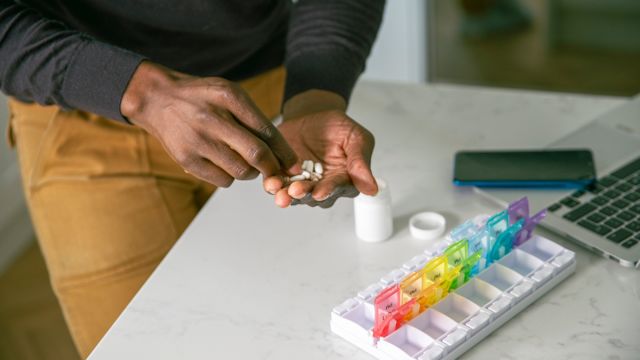Updated on October 16, 2024
Bipolar disorder is a group of mental health conditions that cause episodes of severely high emotions (mania or hypomania) along with episodes of severely low emotions (depression). These episodes affect a person’s moods, thoughts, energy, behavior, and ability to function.
The symptoms and patterns of symptoms vary depending on the type of bipolar disorder a person has, and symptoms can also vary from person to person. For example, some people diagnosed with bipolar disorder experience hypomania, which is a less severe form of mania (though no less serious in the need for treatment). People with bipolar disorder can also experience mixed episodes, which feature symptoms of both mania and depression.
The risks of untreated bipolar disorder
While bipolar disorder is a different experience for different people, every case of bipolar disorder requires treatment.
Left untreated, bipolar disorder typically becomes more severe and can lead to many complications and problems. These include substance use disorders, financial distress, self-harm, increased risk of suicide, and difficulties with work and interpersonal relationships. People with bipolar disorder are also at an increased risk of cardiovascular disease, overweight/obesity, respiratory disease, and diabetes.
Treatment for bipolar disorder is a lifelong process. Treatment typically involves medications along with psychotherapy, education about the condition, and social support. Medications may include mood stabilizers, atypical neuroleptics, and/or antidepressants. Different medications and combinations of medications will work for different people—and a person will need to work with a healthcare provider to find the treatment plan that works for them.
Strategies for adhering to bipolar medications
For anyone living with bipolar disorder, medication adherence is essential to getting the most out of treatment. Medication adherence means following your healthcare provider’s instructions for taking that medication—taking every dose and taking every dose on schedule.
However, studies routinely find that non-adherence to medications is common among people with bipolar disorder.
Here are a few strategies that may help with long-term adherence to bipolar medications:
Have clear instructions on dosing and schedule
The first step in adhering to a medication is having clear instructions on how to take that medication. Know when a medication needs to be taken, how often, and the dosage you need to take each time. Also ask if you will need any lab tests to monitor medication levels in the body. Ask your healthcare provider for clarification if you are unsure about anything. Your pharmacist can also be a valuable source of information.
Know why a medication is important
Knowing why you need a specific medication can help you stay motivated. Talk to your healthcare provider about the risks of untreated (and undertreated) bipolar disorder, how a medication works, and how different medications work together.
Be honest with your healthcare provider
Tell your healthcare provider if you are having any problems adhering to treatment. Report any side effects that you are experiencing, tell your provider if a medication schedule is too complex, or if you have concerns about the cost of a medication. Your healthcare provider is there to help you find solutions.
Make medication a part of your routine
You want to make taking a medication a part of your everyday routine. It can help to link your medication with another part of your routine, such as brushing your teeth. Because routines can be interrupted, it’s also a good idea to set a reminder on a phone or watch. Pill organizers can also be helpful—especially if you’ve ever found yourself trying to remember if you already took a dose of medication.
Keep a calendar and plan ahead
Keep a calendar of upcoming events, like social gatherings, holidays, and travel. Following a treatment plan can be more challenging when you are outside of your everyday routine. Make sure your prescription is filled ahead of time and make sure you have the doses of medication you will need when you step away from your normal routine.
Keep a list of all medications you take
People with bipolar disorder may also need to take medications for other health conditions. Keep a list of all medications you take and share this information with your healthcare providers. This list should include prescription medications, over-the-counter medications, and supplements (including herbal supplements).






